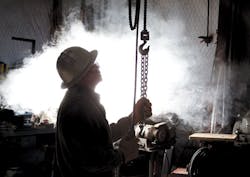Different Perspectives On Engineering Training
Industry veteran and entrepreneur Steve Rubin offered these observations:
The comments made by the industry people struck me as being, “This is the way we need them to think: in our terms.” I don’t think that’s going to entice students to become engineers.
As an industry, we need to show the long-term life value of engineering. It’s not just learning stuff, it’s more about “learning how to learn” so that your career paths are always open and fruitful, no matter where they lead. For the past 15 years, smart students who would have gone into engineering (the post-glow of the moon program) went to Wall Street instead (the pre-glow of money). As the playing field gets leveled in the financial industry, STEM (science, technology, engineering and math) has an opportunity to grow again, if we position ourselves well.
I’m chairman of the board of trustees at Worcester Polytechnic Institute, one of the leading institutions in the United States that graduates some of the most valuable engineers and scientists, straight out of its undergraduate program. (WPI was the school that was chosen as the model for Georgia Tech, many years ago!)
I have the luxury of being able to interact with students and my “take” is that they really want to “make a difference” in the world, moreso than prior generations that just wanted to get a job and put food on the table.
At WPI, we’ve incorporated “innovation” as a discipline in our courses. We have a “Great Problems Seminar” series for freshmen where they tackle problems like “Feed the World,” “Power the World” and “Heal the World,” applying innovative approaches to problems, culminating with poster presentations that will blow you away.
In addition, when students participate in the Interactive Qualifying Projects (a graduation requirement), they spend seven weeks with faculty and an interdisciplinary team of classmates applying engineering to real-world problems (that aren’t necessarily posed with textbook clarity). At a recent competition, the winning team helped village entrepreneurs in Namibia grow their off-grid energy sites that provide cell-phone and lantern battery charging.
Big companies need to get involved in K-12 and higher education to make engineering both exciting and innovative. Public policy will provide some support, but we really need to understand the psyche of students and figure out how to tap that endless energy.
WPI has a program in its Mathematics department to help high school teachers be more engaging and confident when teaching everything from algebra to calculus. We also have a K-12 program that has developed a series of “science simulators”: computer programs that help young students learn scientific method (control and variable experiment) and help them think analytically. An example of an organization of big companies trying to make a difference in STEM is www.changetheequation.org.
February 2011, Related Primer - Future Engineers Need New Technology Education
To read the primer, visit www.automationworld.com/primers-8253
Subscribe to Automation World's RSS Feeds for Columns & Departments

